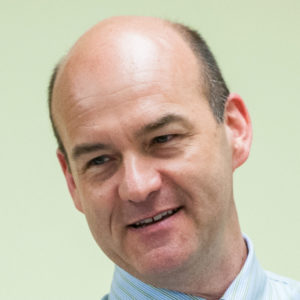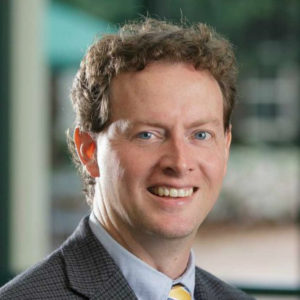Principles of Political Rhetoric
Study classic examples of rhetoric and contemporary political speeches.
Mondays and Thursdays | July 2025
Online
Speech thoroughly mediates our common life. We use it to educate, to share experiences, to spread information, to communicate opinions, and to persuade. The first and the last of these are the most complex and difficult, for they demand interaction and reception. There is no education if no one learns what the educator offers, and there is no persuasion if no one adopts what the rhetorician proposes. Little wonder then that rhetoric is a member of the seven classical liberal arts.
This seminar, offered exclusively to educators, provides an opportunity to read closely Aristotle’s Art of Rhetoric. While Aristotle’s Rhetoric contains a multitude of insights with direct, practical utility for persuasion, its principal task is to comprehend the art, not the execution, of rhetoric. His robust account treats the kinds of rhetoric, the modes of persuasion, and the elements and instruments of persuasive speech. More than that, Aristotle’s work on rhetoric discloses a rich picture of human nature in which our capacity for speech and our concern for the true, the good, and the beautiful are central and intimately connected.
Mary Elizabeth Halper discusses the significance and relevance of Aristotle's Rhetoric for high school educators
This course is offered by Humanities at Hertog, and is offered exclusively to staff & faculty at American high schools. It takes place biweekly on Mondays and Thursdays, via Zoom, from 8 PM to 10 PM ET.

Mary Elizabeth Halper is Dean of the Humanities at Hertog program and a tutor at St. John’s College, Annapolis. Previously, she was Associate Director of the Hertog Foundation. She graduated with B.A.s in Philosophy and Classics from the University of Dallas and has since been devoted to liberal education in various forms.

Mary Elizabeth Halper is Dean of the Humanities at Hertog program and a tutor at St. John’s College, Annapolis. Previously, she was Associate Director of the Hertog Foundation. She graduated with B.A.s in Philosophy and Classics from the University of Dallas and has since been devoted to liberal education in various forms. She earned her Ph.D. in Philosophy from the Catholic University of America, where she defended a dissertation on the political philosophy of Plato’s Protagoras and Gorgias.

Robert C. Bartlett
Robert C. Bartlett is the Behrakis Professor of Hellenic Political Studies at Boston College. His principal area of research is classical political philosophy, with particular attention to the thinkers of ancient Hellas, including Thucydides, Plato, and Aristotle. He is the co-translator of a new edition of Aristotle’s Nicomachean Ethics.

Mary Elizabeth Halper
Mary Elizabeth Halper is the Associate Director at the Hertog Foundation. She graduated with B.A.s in Philosophy and in Classics from the University of Dallas and has since been devoted to liberal education in various forms. She earned her Ph.D. in Philosophy from the Catholic University of America, where she defended a dissertation on the political philosophy of Plato’s Protagoras and Gorgias.

Diana Schaub
Diana Schaub is a nonresident senior fellow at the American Enterprise Institute (AEI), where her work is focused on American political thought and history, particularly Abraham Lincoln, Frederick Douglass, African American political thought, Montesquieu, and the relevance of core American ideals to contemporary challenges and debates. Concurrently, she is Professor Emerita of Political Science at Loyola University Maryland, where she taught for almost three decades.

Benjamin Storey
Benjamin Storey is a senior fellow in Social, Cultural, and Constitutional Studies at the American Enterprise Institute (AEI), and co-director of AEI’s Center for the Future of the American University. He is concurrently an SNF Agora Fellow at Johns Hopkins University and a research fellow at the Civitas Institute at the University of Texas at Austin.

Martha Bayles
Martha Bayles is a fellow at the Institute for Advanced Studies in Culture at the University of Virginia, and since 2003 she has taught humanities at Boston College. She is currently at work on a monograph on the threats to independent journalism around the world; and a book about the importance of “voluntary restraint” in the American tradition of free speech.

Matthew Continetti
Matthew Continetti is the director of domestic policy studies and the inaugural Patrick and Charlene Neal Chair in American Prosperity at the American Enterprise Institute (AEI), where his work is focused on American political thought and history, with a particular focus on the development of the Republican Party and the American conservative movement in the 20th century.